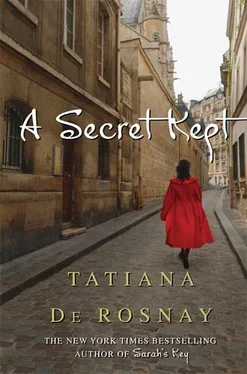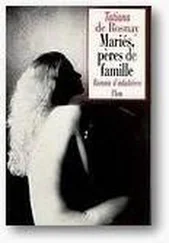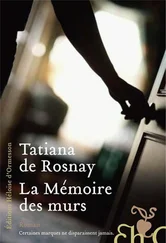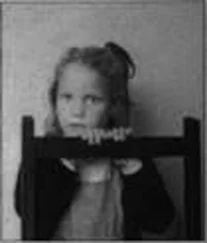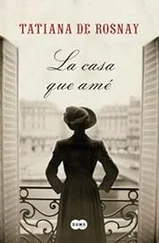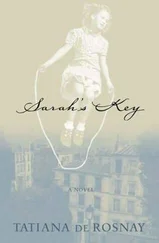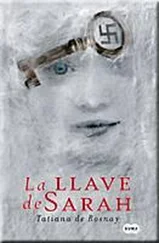There had been no warning. The cute little boy had sprouted overnight into a tall, thin fuzzy-faced giant who merely grunted when he needed to communicate. Antoine had been expecting this. He had witnessed friends’ sons go through the same brutal transformation. But that didn’t make it any easier when it actually happened. Especially as Arno ’s blatant forage into puberty had coincided with Astrid’s betrayal. The most unfortunate timing. This meant that Antoine had to deal with the unavoidable weekend clashes about coming home before midnight, finishing homework, taking at least one shower. Astrid no doubt had to deal with those issues too, but on her end, there was another man in the house. Which probably made her less crabby and impatient than her ex-husband. Antoine felt pulled down and depressed by his isolation. Bearing the brunt of the increasingly numerous stormy situations with Arno alone made him feel even worse. Astrid and he had been a team. They had always done things together. Made decisions together. Faced the enemy together. That was over. Antoine was on his own now. And when Friday night came around and he heard his children’s key in the lock, he had to brace himself, to square his shoulders like a soldier going into battle.
Margaux was at the brink of her full-fledged debut into adolescence. Antoine found hers even harder. He had no idea how to deal with it. She was like a cat-mute, sinuous, and withdrawn. She would spend hours chatting on the computer or riveted to her cell phone. A “bad” text message could bring on tears or total silence. She shied away from her father, avoiding body contact with him. He missed her hugs, her affection. The chatterbox with the lopsided smile and pigtails was gone forever. In her place was a willowy femme-enfant with budding breasts, shiny, pimply skin, and garish eye makeup he longed to wipe away with his fingers. And the fact that Astrid was no longer around made Margaux’s complex budding out even trickier to assess on his own.

Thank you for your sweet note. I know I cannot keep your letters, though I long to, as you cannot keep mine. I cannot believe the summer will soon be over and that you will be leaving again. You seem calm and confident, but I am afraid. Maybe it is because you are wiser than I am. You are not worried. You feel there is hope for us. You think it will work out for you and me. I don’t know. It frightens me. You have taken such a hold over my life this past year. You are like the tide, sweeping relentlessly over the Gois. I surrender time and time again. But fear soon replaces the ecstasy.
She often looks at me curiously, like she knows what is going on, and I feel we must be so careful. But how could she know? How could she guess? Could anyone? I don’t feel guilty, because what I have for you is pure. Don’t smile as you read this, please. Don’t make fun of me. I am thirty-five years old, a mother of two, and with you I feel like a child. You know that. You know what you have started up within me. You have set me alive. Don’t laugh.
You come from a modern country, you are sophisticated and well read, you have a degree, a job, a status. I am only a housewife. I grew up in a sunny village that reeked of lavender and goat cheese. My parents sold fruit and olive oil in the market. When they died, my sister and I worked at the stalls in Le Vigan. I had never taken a train before I met my husband. I was twenty-five years old, and I discovered another world. I had gone to Paris for a little holiday. But I never came back. I met him in a restaurant on the grands boulevards, where I was having a drink with a girlfriend. And that’s how it started, him and me.
I sometimes wonder what you see in me. But more and more I feel you reaching out to me, even in the way you look at me, silently. Your eyes reach out for me.
Tomorrow brings you to me, my love.

After lunch they went swimming in the hotel pool. Antoine was so hot he decided to face Mélanie in a bathing suit. She made no comment about the shape his body was in. He felt thankful. How he hated himself. And to think that when Astrid was still his wife, he weighed at least eight kilos less. He was going to have to do something about it. And something about the smoking.
The pool was a bright artificial blue and full of screaming children. It didn’t exist back in the seventies. Robert and Blanche would have hated it, thought Antoine. They loathed vulgarity, loud people, anything nouveau riche. Their huge, chilly apartment on the quiet avenue Henri-Martin, not far from the Bois de Boulogne, was a haven of elegance, refinement, and silence. Odette, the chinless bonne, hobbled about, opening and shutting doors noiselessly. Even the telephone rang in a muffled way. Meals lasted for hours, and the worst thing, he recalled, was having to be put to bed on Christmas Eve just after dinner and being woken up at midnight for the presents. He would never forget that groggy, jet-lagged feeling, stumbling back into the living room, bleary-eyed. Why weren’t they allowed to stay up to wait for Père Noël?? Christmas came only once a year.
“I keep thinking about what you said,” Antoine said.
“What?”
“About Clarisse and our grandparents. I think you’re right. I think they gave her a hard time.”
“What do you remember?”
“Nothing much.” He shrugged. “Nothing in particular, but just how uptight they were about everything.”
“Ah, so it’s coming back…”
“Something is coming back.”
“Like what?”
He squinted across to her against the sun.
“I remember a fight. During our last summer here.”
Mélanie sat up.
“A fight? No one ever fought. Everything was always smooth, unruffled.”
Antoine sat up too. The pool was teeming with writhing, glistening bodies, stoic parents looking on.
“One night they quarreled. Blanche and Clarisse. In Blanche’s room. I heard them.”
“What did you hear?”
“I heard Clarisse crying.”
Mélanie said nothing.
He went on. “Blanche had a cold, stony voice. I couldn’t hear what she was saying, but it sounded like she was very angry. And then Clarisse came out and saw me there. She hugged me and wiped her tears away. She smiled and said she’d had a little argument with Grand-mère. And what was I doing out of bed, she said, and she shooed me back to my room.”
“What do you think it meant?” mused Mélanie.
“I don’t know. I have no idea. Maybe it’s nothing.”
“Do you think they were happy together?”
“She and Father? Yes, they were. I think so. Clarisse made people happy. You remember that, don’t you?”
She nodded. A pause.
Then she whispered, “I miss her.”
He heard the stifled sob in her voice and reached over to grasp her hand.
“Coming back here is like coming back to her,” she said.
He squeezed her hand, relieved that she couldn’t see his eyes behind his dark glasses.
“I know. I’m sorry. I didn’t think about that when I thought of this trip.”
She smiled at him. “Don’t be sorry. On the contrary. It’s a lovely present. It’s bringing her back to me. Thank you.”
He wanted to let tears run down his cheeks, but he held them back in silence, reining in his emotions, the way he’d done all his life, the way he’d been taught to do.
They lay back again, their pale Parisian faces turned to the sun. She was right. Their mother was coming back to them slowly, like the seawater gliding over the Gois. Fragments of memories, like butterflies escaping from a net. Nothing chronological, nothing precise, but more like a nebulous, lazy dream. Images of her on the beach in her orange bathing suit, her smile, her pale green eyes.
Читать дальше
